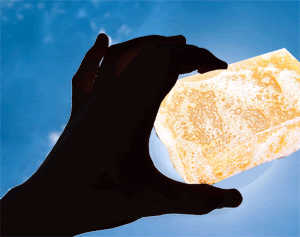In Hospitals, Dirty Hands Can Be Deadly
Johns Hopkins School of Medicine
Nosocomial Infection 101.
The weary young medical students shuffle in, exchange the obligatory nods and grunts that pass for civilized greetings among the harried, and settle in behind their examination tables. They don gowns and gloves as the instructor, a well-rested woman in her mid-thirties, prances into the room. She surveys the dozen or so stressed and depressed students and silently gives thanks at having already passed through the valley of despair known as Year Two.
"Ah - a fabulous day, wouldn't you say?"
She quickly rolls on, knowing she will receive no more than a series of blank stares and, possibly, a raised eyebrow or two.
"OK - step up to the table. Yesterday, we covered Nosocomial infectious theory, including historical perspectives and discoveries, and recent advances within the field. Today, it's time to 'Get your hands dirty!'"
She chuckles to herself and - by herself.
"Hmm... I thought that would kill. OK - examine the three specimens on the table. Don't be shy. Pick them up to get a feel for their heft, bulk, shape and symmetry. Compare the specimens and begin to get a sense of their unique elements, structures, shapes and hues. Now, get your hands into them. Dig in, slather the liquid substances around or, if you're dealing with a solid matter, grasp it firmly between both hands and give it a hardy rub."
She watches silently as the students explore - she notes the looks of discovery and surprise that begin to sweep across their faces. Ah - this is what teaching is all about. She smiles broadly herself, caught up in the wonder.
"All right - you're seeing it aren't you? It's not just theory anymore. It's the real thing. Yes, ladies and gentlemen," she holds up a final specimen and announces loudly:
"This is soap!"
It's sad but true. A recent study confirms that efforts to acquaint hospital workers with the power of soap have failed quite miserably. Researchers at the City University in London report that health care workers fail to consistently wash their hands and that few effective strategies have been instituted to address the issue.
The costs, both physical and financial, are staggering. Each year in the United States, tens of thousands of people acquire what are known as Nosocomial Infections - infections that are acquired after admission to a hospital and are unrelated to the patient's original condition. Thousands of patients die each year as a result and the cost to treat these infections, including longer hospital stays, runs into the billions of dollars annually.
While hand washing is not a cure-all, it must certainly be near the top of any plan to curb hospital-acquired infections. As with many complex medical issues, high-tech solutions are not always necessary. Sometimes, the low-tech fix is, shall we say, within easy reach.
...Watching her students file out of class, the instructor takes a moment to enjoy a renewed sense of hope about the future of health care. But, knowing tomorrow's going to be a brutally tough day, she quickly recaptures her focus. Tomorrow, she introduces her students to a complex and amazing new world: alcohol-based hand cleansing solutions...



0 Comments:
Post a Comment
<< Home